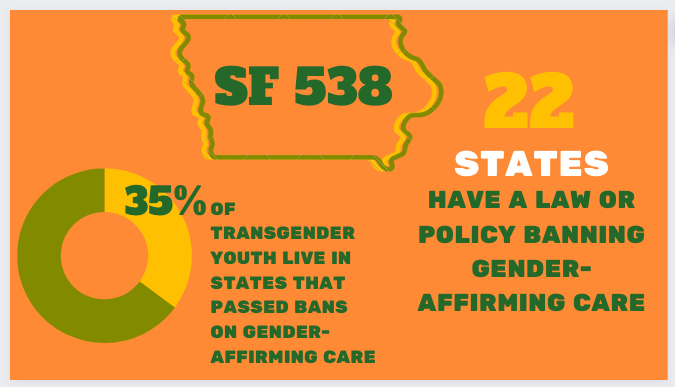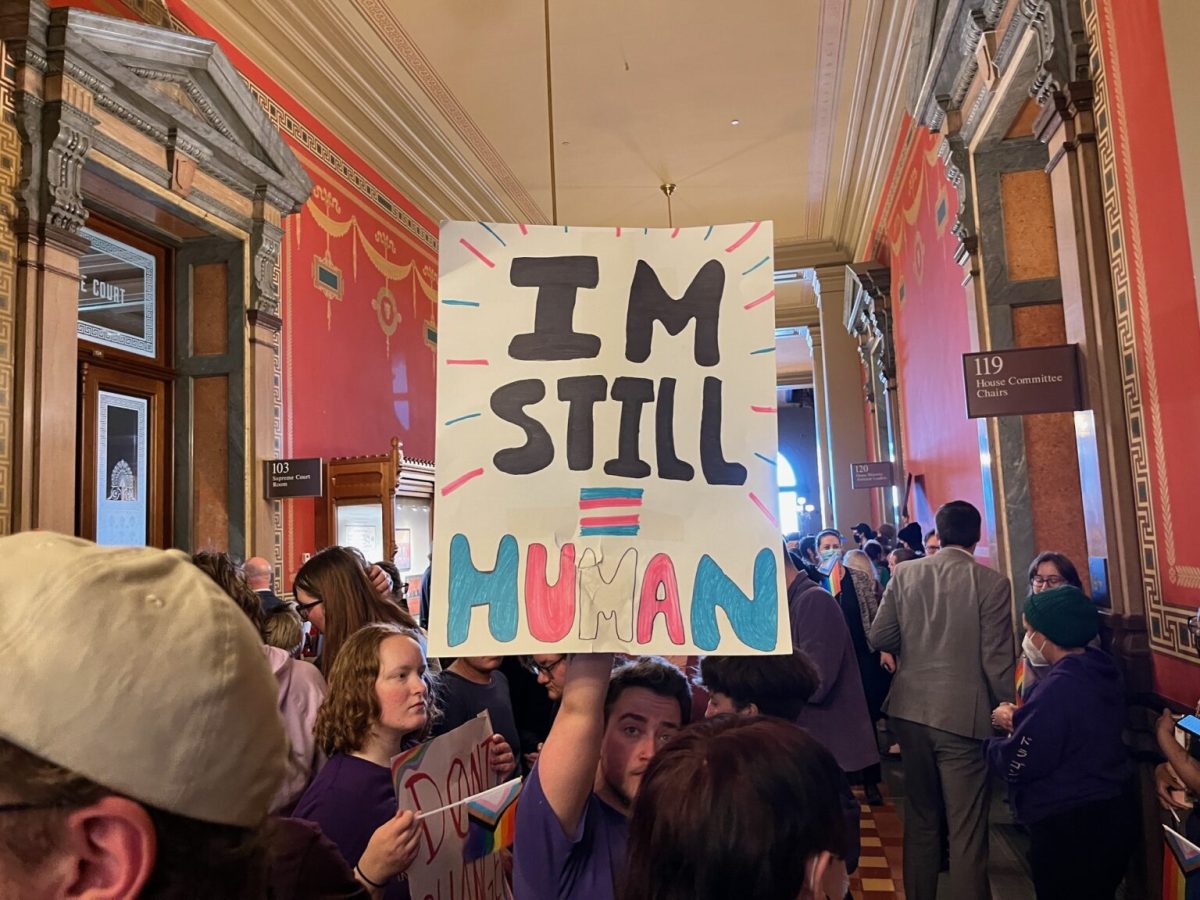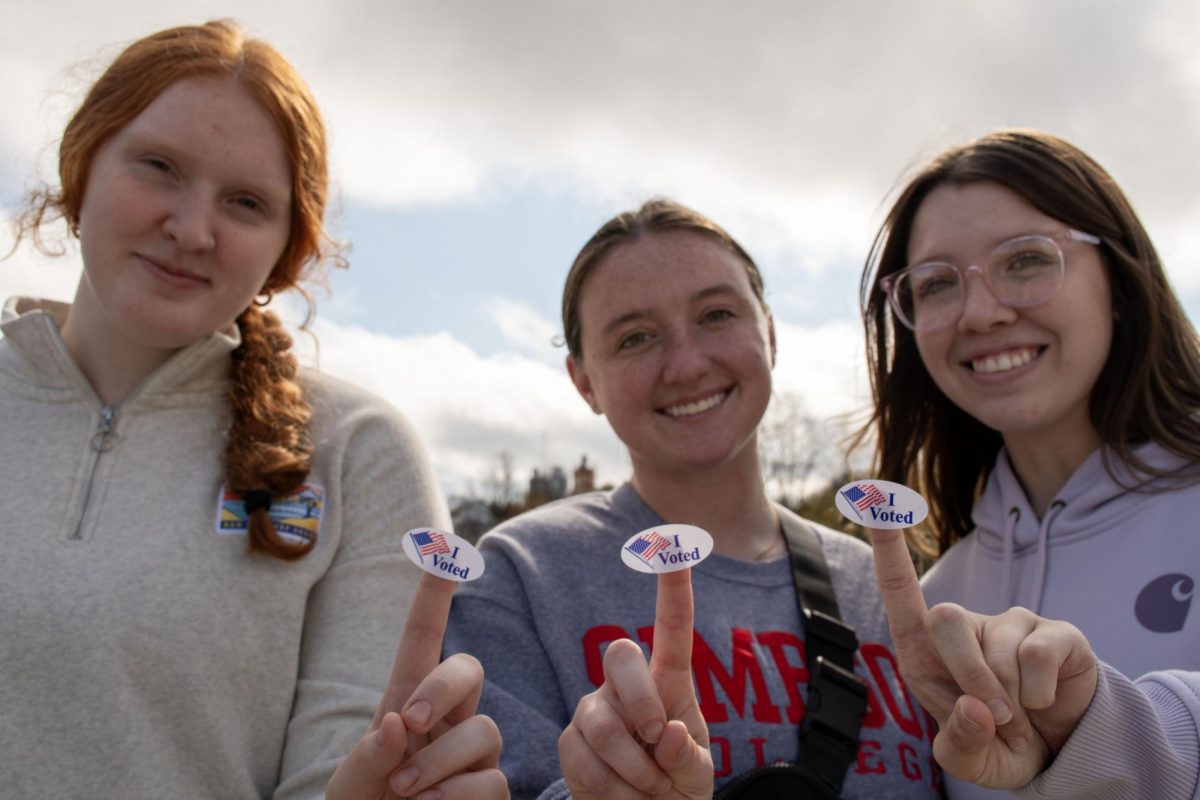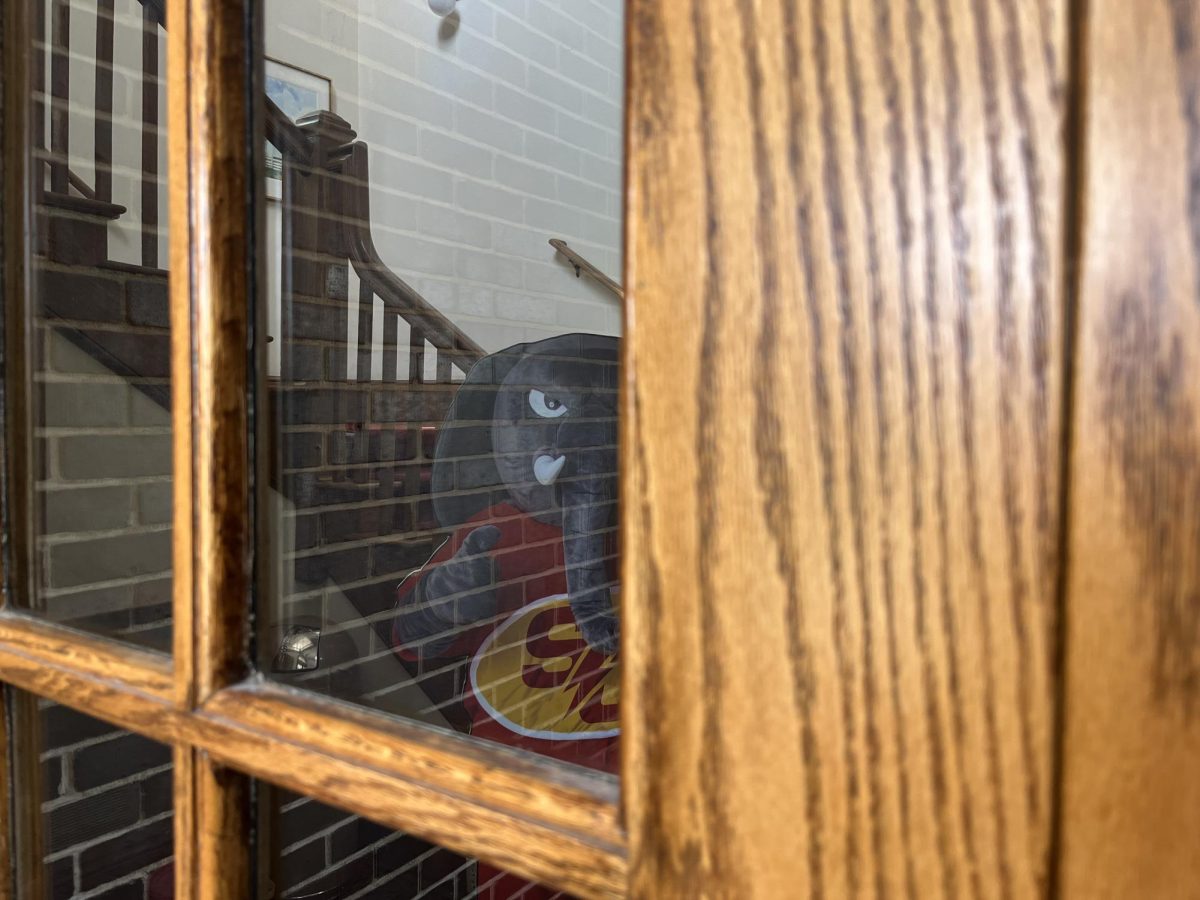Iowa joined a growing number of states looking to restrict access to gender-affirming care when Gov. Kim Reynold’s new bill, SF 538, went into effect on Sept. 18. Simpson’s PRIDE sent out an email addressing the new ban to their members, and promised to continue to provide their support for anyone affected. The email is as follows:
“The impacts of this law are devastating for many trans kids across the state, who will now lose access to gender-affirming care and be required to travel out of state in order to receive it. If you are feeling discouraged or upset by this law and its impacts on LGBTQIA+ youth, we will have time to discuss it during our meeting on Thursday. Please remember to take care of yourselves during this time. Despite the negativity coming from the Iowa legislature, there are many people and organizations across the state that are fighting for the queer community! We’ve got your back and we’re sending much love and support to everyone affected. 
SF 538 bans health care professionals from prescribing medical treatment “for the purpose of attempting to alter the appearance of, or affirm the minor’s perception of, the minor’s gender or sex, if that appearance or perception is inconsistent with the minor’s sex [at birth].” The legislation went into effect immediately after the governor’s signing.
For many transgender youth, this legislation forces them to travel out of state for gender-affirming care, such as hormone replacement therapy (HRT) and puberty blockers to battle gender dysphoria. Gender dysphoria is described as “psychological distress” from the incongruence between gender assignment and gender identity.
PRIDE’s co-president, senior Kalen Stefanick, addressed their overall concerns about the ban and what is to come out of it.
“They’re creating a culture where transphobia is more and more okay,” they said. “The bans come from a place of misunderstanding what gender-affirming health care is.”
Stefanick recalls many efforts the PRIDE club has made in the past to raise awareness and funds for the transgender community. Last year’s drag show was a significant event, where the money made was donated to provide funding for people to access gender-affirming care through the Iowa Trans Mutual Aid Fund.
They named several advocacy organizations aimed at supporting trans youth seeking gender-affirming care and counseling and preserving their rights.
“Iowa Safe Schools, One Iowa and even the ACLU of Iowa have been doing a lot of work to try and raise money for families who may need to go out of state for care, filing petitions against the ban and things like that,” Stefanick said.
Another member of PRIDE, junior Kenneth Norris, details his personal experiences receiving gender-affirming care in Iowa when he came to college. Because they sought this care as an adult, securing the care they needed has been mostly consistent and untroublesome.
“I began at age twenty, so I did not face legal limitations in acquiring the medication I needed. Over the span of a couple of months, this medication began to help with some of the gender dysphoria I had been experiencing for the majority of my life – long before I knew what gender dysphoria was. HRT helped me present in a way that was more reflective of my preferred expression, and it made me feel more comfortable with interacting with strangers in public,” he wrote in an email.
Norris’s journey resembles a journey most trans youth would have been able to achieve had Iowa’s legislature not passed this ban. Now, traveling out of state to receive care — which likely won’t be covered by insurance — will continue to burden trans youth and their families.
Norris continues to have strong feelings about this ban; he wrote:
“In my opinion, this ban is a terrible idea based strictly on the idea of bodily autonomy (amongst other things). Individuals should have the right to do with their bodies what they please and should maintain the right to have specific discussions with their doctors regarding the care they wish to receive. Banning specific methods of healthcare is authoritarian suppression, and the specific nature of this law as it relates to transgender healthcare is blatantly transphobic and foreshadows a coalition of oppression that will hail on a variety of personal liberties that will affect more than just LGBTQIA+ individuals.”
Alongside the gender-affirming care ban, Reynolds signed Iowa’s version of what opponents have called “bathroom bills,” which prohibits transgender people from using school restrooms that do not correspond to their sex assigned at birth.
Simpson’s PRIDE mission is advocacy, education and discussion about the LGBTQ+ community. The PRIDE club wants to continue talking with members about the new bans and creating a safe space for people to raise their concerns and support trans youth during this ongoing human rights battle.






















